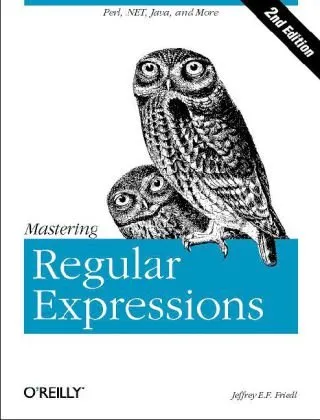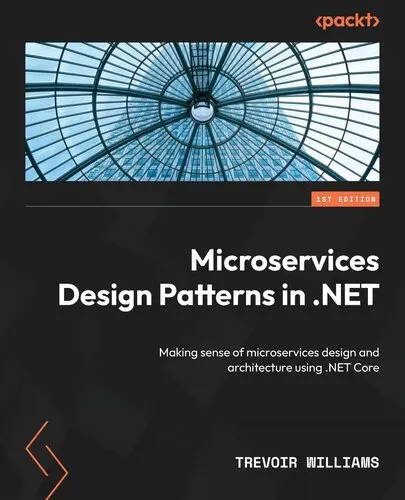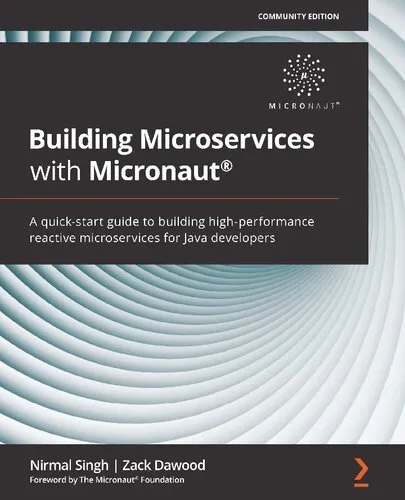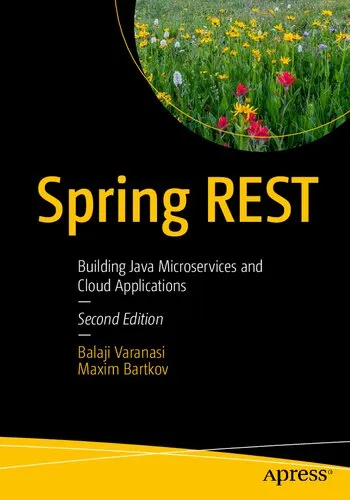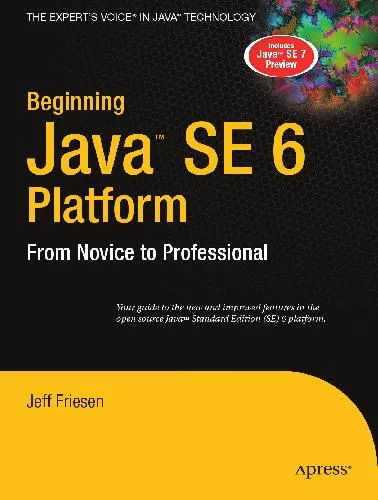Microservices for Java developers : a hands-on introduction to frameworks and containers
4.5
Reviews from our users

You Can Ask your questions from this book's AI after Login
Each download or ask from book AI costs 2 points. To earn more free points, please visit the Points Guide Page and complete some valuable actions.کتاب های مرتبط:
Introduction
In the ever-evolving world of software development, microservices have emerged as a transformative architectural style that promises greater scalability, resilience, and speed of delivery. For Java developers, understanding microservices requires not only grasping the theory but also gaining hands-on experience with the necessary tools and frameworks. 'Microservices for Java Developers: A Hands-On Introduction to Frameworks and Containers' serves as an essential guide for developers looking to transition from monolithic applications to microservice-based architectures.
Written with both beginner and intermediate-level developers in mind, this book takes a practical approach to learning. It is designed to provide valuable insights into the fundamental building blocks of microservices, modern Java frameworks, and container-based environments. By walking readers through real-world scenarios, this book arms developers with the techniques and knowledge they need to build, deploy, and maintain microservices successfully in production environments.
Detailed Summary of the Book
The book opens with a comprehensive explanation of what microservices are, their core principles, and why they have become a favored choice for designing scalable software. It offers a clear comparison to monolithic architectures, helping developers understand what makes microservices unique and when to adopt them.
The core sections focus heavily on practical, hands-on exercises using Java-based frameworks like Spring Boot, Eclipse MicroProfile, and Apache Camel. The book guides readers step by step in creating microservices, setting up RESTful APIs, and implementing the foundational concepts such as service discovery, load balancing, and communication among services. By leveraging modern tools like Docker and Kubernetes, the book also provides essential guidance on deploying microservices to containerized environments, ensuring portability and streamlined workflows.
Moreover, the book addresses common challenges developers face when shifting to microservices. Topics such as distributed data management, debugging complex systems, and establishing proper observability frameworks are explored in depth. Special attention is dedicated to explaining patterns like the Circuit Breaker, API Gateway, and Event-driven Messaging, which are indispensable in maintaining the reliability of a microservices system.
The final sections of the book look towards the future: scaling microservices applications, securing inter-service communications, and adopting DevOps practices for expedited delivery cycles. This ensures developers understand how to build resilient systems that can scale gracefully as business needs evolve.
Key Takeaways
Here are the key concepts and lessons you will gain by reading this book:
- Understand the core principles of microservices architecture and its advantages over monolithic systems.
- Learn how to create and manage microservices using frameworks like Spring Boot, Eclipse MicroProfile, and Apache Camel.
- Deploy and orchestrate microservices inside container environments using Docker and Kubernetes.
- Master advanced topics like distributed data management, service communication patterns, and fault tolerance mechanisms.
- Gain insights into the best practices for debugging, securing, and monitoring microservices in production.
- Adopt DevOps methodologies such as CI/CD pipelines to streamline development and deployment workflows.
Famous Quotes from the Book
The book is filled with insightful ideas and thought-provoking observations. Here are some highlighted quotes:
"Microservices are not just about splitting applications into smaller parts—they are about empowering developers to iterate faster, fail gracefully, and deliver value continuously."
"Java developers have a unique advantage in the microservices world: a mature ecosystem of frameworks and tools, combined with decades of best practices."
"Moving to microservices demands a shift in technical as well as cultural mindset. The success of this transition is measured by how quickly teams can adapt."
Why This Book Matters
The software development landscape is rapidly changing, and Java developers cannot afford to lose relevance in the age of cloud computing and distributed systems. This book matters because it goes beyond a theoretical introduction, equipping developers with practical, hands-on skills that are immediately applicable in real-world projects.
Moreover, microservices architecture has become a cornerstone of modern software development practices. From startups to enterprises, organizations are increasingly migrating their legacy systems to microservices for improved agility and resilience. However, this shift also introduces significant challenges related to complexity, performance, and scalability. This book bridges that gap, providing readers with actionable knowledge to navigate these challenges and achieve microservices success.
Whether you're an experienced Java developer looking to modernize your skill set or a beginner curious about microservices, this book provides the guidance and expertise you need to thrive in today’s software industry.
Free Direct Download
You Can Download this book after Login
Accessing books through legal platforms and public libraries not only supports the rights of authors and publishers but also contributes to the sustainability of reading culture. Before downloading, please take a moment to consider these options.
Find this book on other platforms:
WorldCat helps you find books in libraries worldwide.
See ratings, reviews, and discussions on Goodreads.
Find and buy rare or used books on AbeBooks.
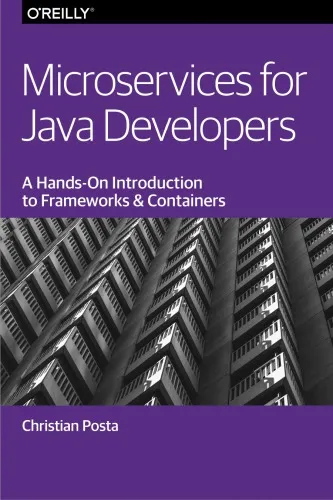

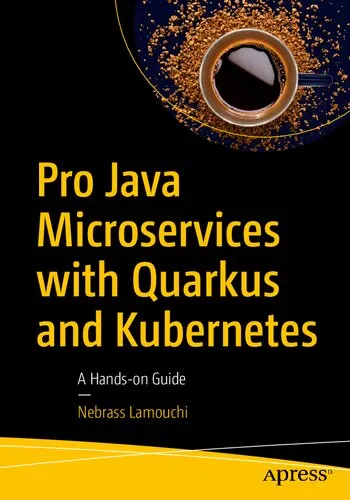
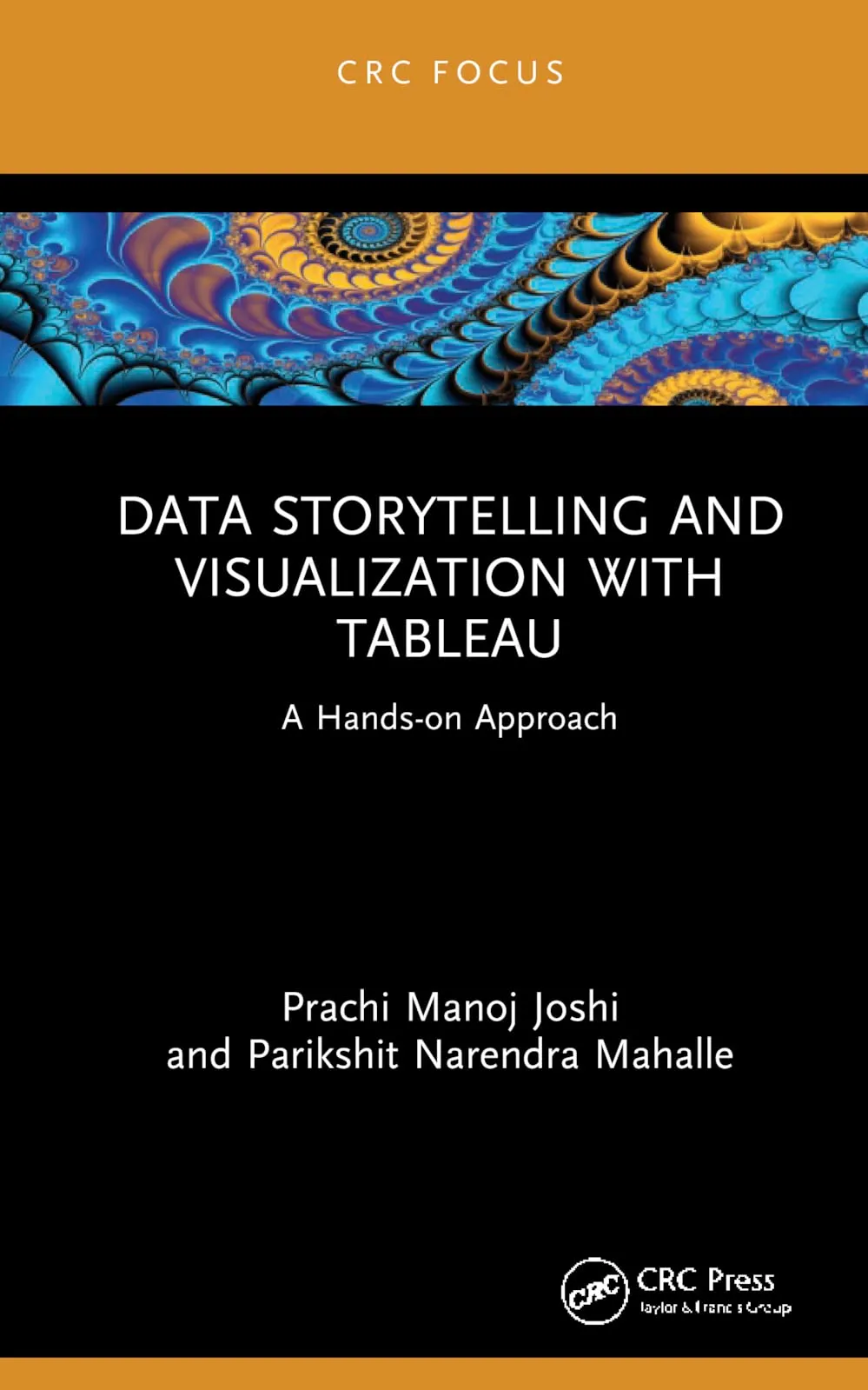

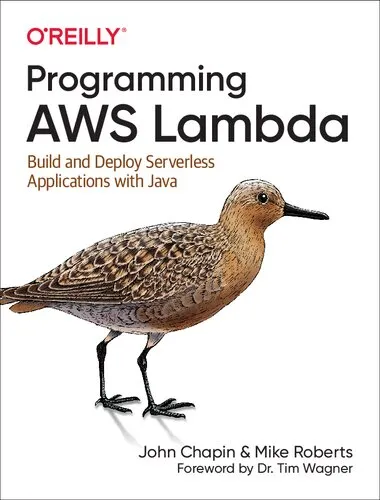
![The Ultimate iOS Interview Playbook: Conquer Swift, frameworks, design patterns, and app architecture [Team-IRA]](https://s3.refhub.ir/images/thumb/The_Ultimate_iOS_Interview_Playbook__Conquer__29925.webp)
![Get Your Hands Dirty on Clean Architecture: Build 'clean' applications with code examples in Java, 2nd Edition [Team-IRA]](https://s3.refhub.ir/images/thumb/Get_Your_Hands_Dirty_on_Clean_Architecture__B_31019.webp)
